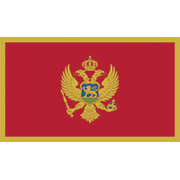Fiscal subject related
General information
The proposed changes include:
- Amended VAT Rates: The bill outlines adjustments to VAT rates for various categories of goods, services, and imports.
- Reduced Rates: A reduced 7 percent VAT rate is proposed for basic products and drugs, while a 15 percent rate is suggested for books and accommodation services.
- VAT-Exempt Categories: Certain categories will be exempt from VAT upon import.
- Marina Services: A measure to apply a reduced 15 percent VAT rate to marina services until Montenegro's accession to the EU.
These amendments are designed to ease the financial burden on consumers and support the growth of businesses in Montenegro. The new law is set to take effect from January 1, 2025, but the additional confirmations and information will be published in the coming months.
Other news from Montenegro
New document was uploaded: S4F backoffice patch
S4F backoffice patch is intended for users who have already installed S4F backoffice and are intended to update existing installations to latest version. To do so apply only patches that are marked with version number that is newer than your currently installed instance of backoffice. Read more



TLv6 Implementation Marks Significant Shift in EU’s Trust List Format
A new EU Trust List format, TLv6, will officially replace TLv5 in May 2025 as part of the updated eIDAS Regulation (EU 2024/1183). It introduces key technical changes like a new URI field, updated signature format, and optional phone number support. Organizations must update their systems to avoid signature validation failures and service disruptions, as TLv5 will no longer be valid once TLv6 take... Read more



Similarities between fiscalization systems in Albania and Montenegro
The fiscalization systems in Albania and Montenegro share similarities, including real-time communication with tax authorities, mandatory transaction authorization, and flexibility regarding software and hardware specifications. However, notable differences remain in legal requirements, data registration obligations, and specific receipt details The fiscalization systems in Montenegro and Albania... Read more



New document was uploaded: S4F backoffice patch
S4F backoffice patch is intended for users who have already installed S4F backoffice and are intended to update existing installations to latest version. To do so apply only patches that are marked with version number that is newer than your currently installed instance of backoffice. Read more



New document was uploaded: S4F backoffice patch
S4F backoffice patch is intended for users who have already installed S4F backoffice and are intended to update existing installations to latest version. To do so apply only patches that are marked with version number that is newer than your currently installed instance of backoffice. Read more



The tax administration of Montenegro published the rulebook for products and services taxed at a reduced VAT rate.
 Montenegro
Author: Nikolina Basić
Montenegro
Author: Nikolina Basić
Montenegro's Tax Administration has published a rulebook outlining products and services eligible for a reduced VAT rate, effective January 1, 2025, including basic foods, medical devices, and public transportation. In accordance with the latest updates regarding changes of VAT rates in Montenegro, effective from January 1st, 2025, the Montenegrin Tax Administration published a rulebook on determi... Read more



New document was uploaded: S4F backoffice patch
S4F backoffice patch is intended for users who have already installed S4F backoffice and are intended to update existing installations to latest version. To do so apply only patches that are marked with version number that is newer than your currently installed instance of backoffice. Read more


